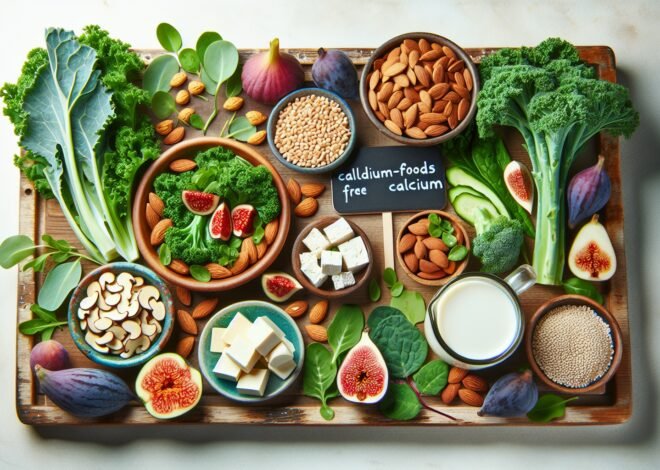
How to Use Ginger to Reduce Inflammation
Ginger for inflammation is a powerful natural remedy. Known for its anti-inflammatory properties, ginger has been used for centuries to alleviate various health conditions. This post will explore practical ways to incorporate ginger into your diet to help reduce inflammation. From teas to meals, discover how this versatile spice can be a simple addition to your routine. Whether you are dealing with chronic pain or just looking to improve your overall health, understanding how to use ginger effectively could make a significant difference. Dive into these tips and start leveraging the benefits of ginger today.
Understanding the Benefits of Ginger for Inflammation
Ginger has been cherished for centuries, not just for its distinct flavor but also for its potent anti-inflammatory properties. Its power in combating inflammation is something that modern science continues to explore. Inflammation, while a natural response, can lead to various health issues if chronic. Discover how ginger serves as a natural remedy, offering relief and promoting well-being.
What Makes Ginger Effective for Reducing Inflammation?
Ginger’s anti-inflammatory prowess lies in its rich composition. The magic happens due to compounds like gingerols, shogaols, and paradols, known for their ability to combat inflammation. These compounds work by inhibiting enzymes and cytokines that trigger inflammatory responses in the body.
- Gingerols: The primary active compounds, gingerols, inhibit pro-inflammatory pathways.
- Shogaols: Formed when ginger is dried; they are even more potent than gingerols.
- Paradols: Found in small amounts, yet they contribute to ginger’s overall effectiveness.
These components help in reducing the swelling, pain, and discomfort associated with inflammation. Ginger’s natural ability to modulate inflammatory pathways makes it a popular choice among those seeking holistic health solutions.
Scientific Studies Supporting the Anti-inflammatory Properties of Ginger
Science backs the traditional use of ginger, providing evidence of its effectiveness. Numerous studies highlight ginger’s role in reducing inflammation and its associated symptoms.
- Study on Arthritis Patients: Research involving arthritis patients showed significant improvement in pain and swelling after regular ginger intake.
- Study on Muscle Pain: Athletes experienced reduced muscle pain after consuming ginger supplements, showcasing its ability to alleviate inflammation-induced discomfort.
- Research on Cellular Activity: In vitro studies demonstrate how ginger compounds reduce the production of inflammatory markers at the cellular level.
These studies underscore ginger’s potential as a natural alternative to synthetic anti-inflammatory agents. The scientific community continues to delve deeper, unraveling more benefits of this powerful root.
Comparing Ginger’s Efficacy to Conventional Anti-inflammatory Medications
When it comes to fighting inflammation, ginger stands out as a promising alternative to conventional medications. While non-steroidal anti-inflammatory drugs (NSAIDs) are effective, they come with side effects like stomach ulcers and cardiovascular risks. Ginger, on the other hand, offers a gentler approach.
- Natural vs. Synthetic: Ginger provides a natural pathway, reducing the risk of side effects associated with synthetic drugs.
- Long-term Use: Safe for prolonged use, ginger supports sustained inflammation relief.
- Synergistic Effects: It can enhance the efficacy of conventional medications when used in conjunction.
Comparing ginger to traditional medications reveals its potential to provide similar benefits without adverse effects. This makes it an appealing option for those seeking natural health solutions, blending ancient wisdom with modern science.
Ways to Incorporate Ginger into Your Diet for Inflammation Relief
Incorporating ginger into your daily routine can be both delicious and beneficial. With its versatile nature, ginger fits seamlessly into various dishes and drinks, making it easy to enjoy its inflammation-fighting properties. Explore different ways to harness the power of ginger for a healthier lifestyle.
How to Use Fresh Ginger in Cooking for Anti-inflammatory Benefits
Cooking with fresh ginger not only enhances flavor but also boosts health benefits. Its zesty and warming profile makes it a favorite in many cuisines. To maximize its anti-inflammatory effects, consider these tips:
- Grating: Grate fresh ginger into stir-fries, sauces, and soups.
- Slicing: Add thin slices to salads and marinades for a spicy kick.
- Juicing: Blend with fruits and vegetables for a nutrient-packed smoothie.
Experiment with ginger across different recipes to enjoy its unique taste and health advantages. Its versatility ensures there’s always a way to add a zing of wellness to your meals.
Top Anti-inflammatory Ginger Tea Recipes
Ginger tea is a soothing way to enjoy the root’s benefits. With a warm cup in hand, you can relax and let ginger work its magic on inflammation. Here are some inspiring recipes:
- Classic Ginger Tea: Boil fresh ginger slices in water for 10 minutes. Add honey and lemon for extra flavor.
- Turmeric Ginger Tea: Combine turmeric and ginger slices, boil, and sweeten with maple syrup.
- Spiced Ginger Tea: Infuse cloves and cinnamon sticks with ginger for a spiced twist.
These teas not only provide comfort but also help mitigate inflammation. Adjust the ingredients to suit your taste, making each cup a personalized remedy.
Ginger Supplements: Options and Dosage for Optimal Results
Supplements offer a convenient way to ensure consistent ginger intake. They come in various forms, allowing you to choose what fits your lifestyle best.
- Capsules: Easy to use, providing a measured dose.
- Powder: Versatile for smoothies, teas, or sprinkled on food.
- Extracts: Concentrated forms for potent effects.
When selecting supplements, consider the dosage recommended by health professionals. Typically, a daily intake of 1,000 to 2,000 mg of ginger is effective, but it’s wise to consult with a healthcare provider for personalized advice.
Precautions and Tips for Using Ginger for Inflammation
Ginger, while beneficial, should be used with care. Understanding potential side effects and knowing who should avoid it ensures safe consumption. Learning how to maximize its anti-inflammatory effects can enhance your experience, making ginger a trusted ally in your wellness journey.
Potential Side Effects of Ginger and How to Avoid Them
Ginger is generally safe, but some might experience side effects. These can include digestive discomfort, heartburn, or allergic reactions. To minimize risks:
- Start Slowly: Begin with small amounts to gauge tolerance.
- Monitor Symptoms: Pay attention to any adverse reactions.
- Consider Timing: Consume with meals to reduce digestive issues.
Awareness of these factors helps in enjoying ginger without unwanted effects. Adjusting intake based on personal response ensures a positive experience.
Who Should Avoid Using Ginger for Inflammation?
While ginger is beneficial, certain individuals should exercise caution:
- Pregnant Women: Consult a healthcare provider due to potential effects on pregnancy.
- People with Bleeding Disorders: Ginger may affect blood clotting.
- Those on Medication: Check for interactions with prescribed drugs.
Understanding these considerations ensures that ginger enhances health without complications. Consulting with a healthcare professional provides clarity and guidance.
Tips for Maximizing the Anti-inflammatory Effects of Ginger in Your Routine
Incorporating ginger effectively into your routine can amplify its benefits. Here are some tips:
- Consistency is Key: Regular intake boosts its anti-inflammatory power.
- Pair with Other Foods: Combine with turmeric or garlic for synergistic effects.
- Stay Informed: Keep updated on research to refine your ginger use.
Following these strategies enhances ginger’s role in fighting inflammation. As you integrate it into your life, enjoy the improvements in wellness and vitality that this remarkable root offers.
Conclusion
Ginger is recognized for its anti-inflammatory properties. It contains compounds like gingerol, which help reduce inflammation in the body. Studies suggest ginger can be effective in alleviating symptoms related to arthritis and other inflammatory conditions. Consuming ginger may also help reduce muscle pain and soreness. It can be used in various forms, such as fresh, dried, or as a supplement, to harness its anti-inflammatory benefits.
FAQ
How does ginger reduce inflammation in the body?
Ginger contains compounds like gingerols and shogaols that block inflammatory pathways. These compounds reduce the production of pro-inflammatory chemicals, which helps lower inflammation in the body.
What are the best ways to consume ginger for inflammation relief?
Fresh ginger tea, ginger powder in smoothies, or ginger capsules are effective ways to consume ginger. Including it in meals or using ginger extracts can also provide anti-inflammatory benefits.
Can ginger help with joint pain and arthritis inflammation?
Ginger’s anti-inflammatory properties can alleviate joint pain and reduce arthritis symptoms. Many find relief by regularly consuming ginger, experiencing less stiffness and improved joint function.
How long does it take for ginger to show effects on inflammation?
Some might notice improvements in a few days, while for others, it might take a few weeks. Consistency in use typically leads to the best results.
Are there any side effects of using ginger for inflammation?
Ginger is generally safe but can cause mild side effects like heartburn or stomach upset in some individuals. It’s important to start with a small dose to gauge tolerance.
What is the recommended daily dosage of ginger for reducing inflammation?
For reducing inflammation, 1-2 grams of ginger per day is often recommended. Consulting with a healthcare professional can help tailor the dosage to individual needs.











